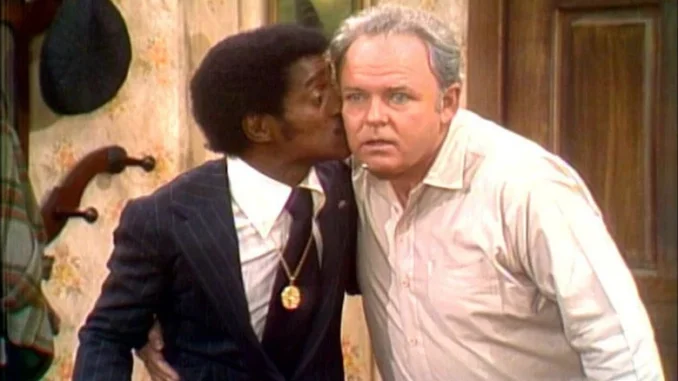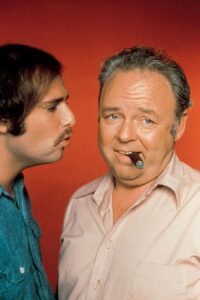
Legend has it the first two attempts at the “All in the Family” pilot, titled “Justice for All” and “Those Were the Days,” didn’t work due to the casting (and you know how the saying about legend and fact goes from “The Man Who Shot Liberty Valance”). However, while there is surely more than a grain of truth to this notion, that’s not what Lear is quoted as saying in LIFE’s 2021 single-issue magazine “All In The Family: TV’s Groundbreaking Comedy.” According to the late writer/producer, the studio audience “roared with laughter” watching “Those Were the Days,” but ABC declined to air the episode despite having already spent $250,000 making it. “It wasn’t a question of whether it was funny or not,” Lear stated. “They peed in their pants. But they were afraid.”

CBS was comically skittish about the whole thing, too, and threw on a long-winded disclaimer at the start of its reconfigured “All in the Family” pilot, “Meet the Bunkers,” just in case its gamble didn’t pay off. After all, lighthearted, cheery larks like “The Andy Griffith Show,” “Gilligan’s Island,” “Petticoat Junction,” and “Mister Ed” ruled the network’s airwaves in the ’60s. The furthest CBS had strayed from “safe” sitcom depictions of modern Americans was probably “The Munsters” … and last I checked, Herman Munster wasn’t fond of lightly using discriminatory terminology or giving his relatives rude nicknames like “Dingbat” and “Meathead,” unlike “All in the Family” pater familias Archie Bunker.
To tell the truth, “The Munsters” was wryly tuned into the sociopolitical concerns of its day, using Universal monster archetypes as a metaphor for marginalized and “othered” groups. “All in the Family” just proves that television viewers were ready to do away with the conceits altogether, much like those flocking to the films of the American New Wave in theaters. ABC’s loss was CBS’ gain.